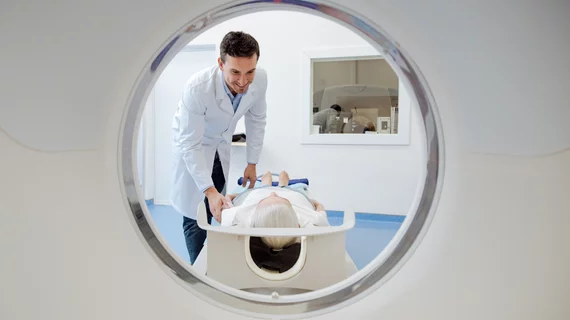Magnetic eyelashes were the top beauty-related Google search term last year, but the faux lashes can have adverse effects if worn during an MRI scan.
In fact, such eyelashes can reduce the quality of an image and even put the patient in danger, wrote authors Einat Slonimsky, MD, and Alexander Mamourian, MD, of Penn State Health Milton S. Hershey Medical Center in Hershey, Pennsylvania.
“Although friction and adhesion may differ from patient to patient, depending on the width and character of the native eyelashes of an individual,” the pair wrote, “we strongly recommend inserting a line about magnetic eyelashes on the MRI safety questionnaire and adding stops in the screening system to prevent the entry of anyone with these lashes, including staff, into the MRI scanner room.”
For the study, published July 24 in the American Journal of Roentgenology, the team bought two sets of randomly selected magnetic eyelashes and attached them to nylon strings located within a water-based phantom. The phantom was submerged in distilled water before going through a variety of MRI scan types. These results were compared to images gathered using an aneurysm clip submerged in the water.
Overall, the eyelashes crated a “substantial artifact,” much larger than that created by the aneurysm clips, the authors noted. The artifact was 7 × 6 cm, completely blocking the entire phantom.
“Although we tested only one kind of magnetic eyelashes, it is reasonable to assume that all such lashes will behave in this manner, producing either somewhat less or somewhat more magnetic field distortion, and that all will be attracted to the static magnet,” the researchers wrote.

